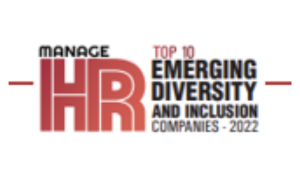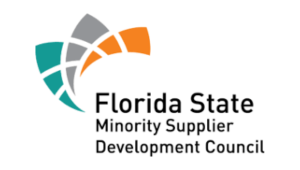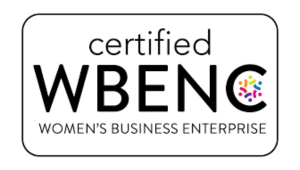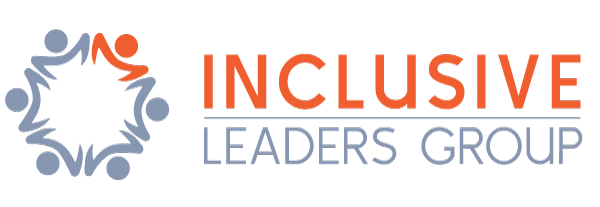The benefits of inclusive leadership driving value in the enterprise have long been clear:
- In 2017 McKinsey & Company published an extensive analysis to explore not only how diversity matters but also how companies can use inclusive leadership to improve their financial performance.
- The following year, Inc. magazine advised executives that elevated performance, more innovation, and engaged employees are just a few benefits of inclusive leadership.
- In 2019, Harvard Business Review published Why Inclusive Leaders Are Good for Organizations, and How to Become One, which described some of the key traits or behaviors that they found distinguish inclusive leaders from others.
- Last summer the power of the George Floyd movement was undeniable, and corporate America felt compelled to respond in some way. As the protests continued, more companies, including those that had already made an initial response, took actions for equity and inclusion that felt weightier and longer-lasting.
Despite the overwhelming data, and CEOs’ motivation, many organizations face a problem: Even though research and studies argue for inclusive leaders in today’s workforce, finding a valid and reliable method to assess inclusive leadership remains a challenge to many companies of all sizes.
BUILDING AN INCLUSIVE LEADERSHIP CULTURE IS KEY
Understanding and providing guidance around the development of inclusive leadership became a driving focus at Inclusive Leaders Group. So we joined forces with Dr. Marilyn Buckner, President of National Training Systems (NTS) and now Inclusive Leaders Group Senior Consultant and Assessment Director.
Marilyn designed Inclusive Leaders Group’s innovative Inclusive leadership Assessment solutions to help organizations increase their effectiveness in measuring the inclusiveness of all leaders. Client organizations can establish diversity and inclusion benchmarks; in the process, leaders will better internalize the behaviors, leading to faster, more meaningful change. Marilyn consults ILG clients directly and oversees our team of consultants and coaches that deliver consulting and training on inclusive leadership assessment/development, succession management, performance management, change management, and other programs and interventions to help leaders design and drive organizational effectiveness.
HOW TO ASSESS, SELECT, AND DEVELOP INCLUSIVE LEADERS
While you may be confident in your diverse workforce, creating a cohesive collection of teams where everyone is excited to contribute and innovate can be more challenging. Inclusive leadership is powerful. However, few organizations are currently measuring, recognizing, developing, and rewarding it:
- Only 40 percent of executives believe their leadership is held accountable for fostering an inclusive culture and only 35 percent said their leadership considers inclusive behaviors as promotion criteria for leaders, according to Russell Reynolds Associates 2017 Diversity and Inclusion Pulse survey, which asked more than 1,800 leaders globally about their organizations’ D&I strategies and practices.
- By measuring the inclusiveness of all leaders, organizations can establish diversity and inclusion benchmarks; in the process, leaders will better internalize the behaviors, leading to faster, more meaningful change.
- Because the assessments are based on behaviors when combined with Inclusive Leaders Group’s training and coaching, the solution provides scalability that can be broadly and quickly implemented with immediate observable impact.
Do You Know If Your Leaders Are Inclusive?
When consulting ILG clients, Dr. Buckner explains the challenge of assessing inclusive leadership and specifically describes a valid, reliable, and actionable instrument to drive high performance.
What constitutes ‘inclusive leadership’ is not well understood, with many leaders unclear of the behaviors that are important. Moreover, research shows that many leaders overestimate how inclusive they are, particularly those who are less capable, which can lead them to be less vigilant in their day-to-day behaviors.
The Inclusive Leader Decision Styles assessment addresses these challenges and is used by Fortune 500 companies and other leading organizations, the Inclusive Leader Decision Styles helps leaders to understand and strengthen their inclusive leadership impact, enabling them to lead others more fairly and effectively, and to better harness the diversity of their team for improved performance.
Questions about the Inclusive Leadership Assessment – Decision Styles
- What makes the Inclusive Leader Decision Styles assessment effective at measuring inclusive leadership traits and competencies? The Decision Styles assessment report identifies key inclusive behaviors such as Flexible and Integrative styles. These styles are associated with Collaboration, Empathy, Listening, Adaptable Interpersonal skills, Humility, and other related leadership competencies. The report provides actionable ideas for the leader on how to grow these inclusive behaviors.
- What is the normal lead time for clients to complete and generate the Inclusive Leader Decision Styles assessment, and the usual duration for Inclusive Leaders Group to generate the assessment report with results, and schedule a feedback session with the client organization?The Decision Styles assessment is completed online and only takes about 30 minutes. The reports are available almost immediately. Feedback sessions can be scheduled with the client before the assessment is taken. Results will be provided to an individual or a group virtually within a week or so.
- Following the assessment feedback report, what insights will participants gain? Director level and C-Suite level leaders will immediately gain insights by comparing their results to the benchmark norms of styles and behaviors of the top 20% of successful inclusive leaders. (Note there are different norms for Managers, Directors, VP level, and C-Suite level). If the results show their scores do not match their job level norm at this time, they will get actionable ideas for development in the areas of empathy, listening, soliciting input, team participation, emotional intelligence, empowerment, and strategic orientation, name some key areas. It’s important to know that scores can change as the leader develops new behaviors and traits. This research was published in a Harvard Business Review article from 2006.
- Describe a Team Session to Debrief Group Results: In some cases, team leaders want the entire team to have the benefit of reviewing each individual’s report and a team’s assessment results…what happens in this session? If the team leader also wants their team to complete the assessment, a team report identifying the team’s strengths and gaps will be prepared for discussion. Additional class materials provide more insight with videos and peer discussions to identify development actions. This program has been used in many Fortune 500 companies, Universities, and Government agencies over the last two decades. An article providing a case study documenting growth in these skills through a coaching and leadership development program was published in the strategic HR Journal, HR People + Strategy.
Are your organization’s managers and executives truly inclusive? Do they optimize talent performance and business results through inclusive leadership?
Gain personal insight by taking the Inclusive Leadership Self-Assessment and get a free Inclusive Leadership E-Guide.
Inclusive Leaders Group’s Assessments provide insight into important aspects of Inclusive Leadership and Diversity in your workplace. If you’re ready for a consultation to discuss your situation, please Contact Us.
![]()
Charlotte F. Hughes is the successful Co-founder and CEO of Inclusive Leaders Group, LLC where she has designed and directed DEI talent and organizational development strategies that have been implemented by Fortune 500 companies, large and small healthcare systems, and some of the largest global non-profits. Charlotte is a widely sought-after speaker and thought leader on issues ranging from allyship & belonging, inclusive leadership, to everyday practices for building a healthy inclusive culture. Each presentation is based on research, tailored to the specifics of the group and presented with Charlotte’s recognized levels of introspection, self-awareness, and painting a picture through storytelling.








